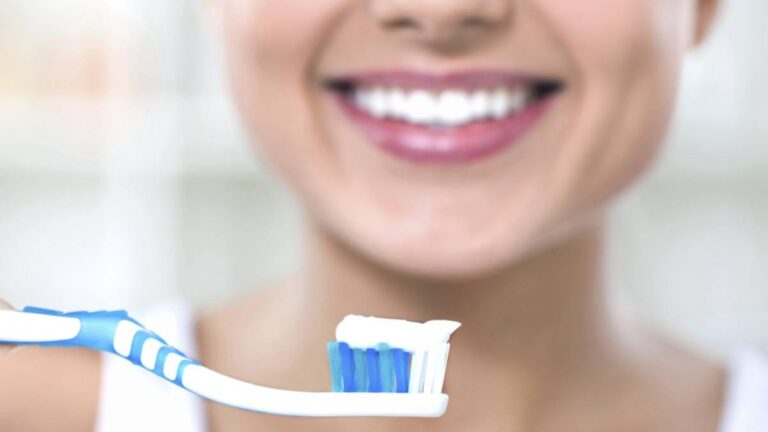
TOOTH BRUSH
The toothbrush is the basis of daily oral hygiene, as it is essential to eliminate bacteria effectively and thus prevent the main infections caused by the accumulation of bacteria, such as caries, gum disease, tooth sensitivity, gingivitis, etc. That's why today we have these frequently asked questions about toothbrushes, toothpaste and how to brush your teeth correctly that some of our patients have asked us.
How should you choose a toothbrush?
Choose a brush with a small to medium sized head that can fit in the back of your mouth (small head brushes are recommended for children).
- Choose a brush with soft rounded bristles or medium bristles.
- Choose a brush with a comfortable and durable handle.
- It is recommended to change brushes every 2-3 months.


Which toothpaste can I use?
Toothpastes are varied, some of them are for special cases, one of the most frequent are tooth decay, that is why the most recommended to prevent the formation of these are those that are composed of a high fluoride content, The College of Dentists and Stomatologists of Valencia (ICOEV) advises the use of toothpastes that contain an amount of fluoride greater than 1,000 particles per million. But there is also another series of toothpastes that are for patients who have other oral health problems. If this is the case, we recommend that you visit your dentist.
Should I use a toothbrush with medium or soft bristles?
The general recommendation of specialists is to choose a toothbrush of medium hardness, as they remove food debris without damaging the tooth enamel and especially the gums, but if you have tooth sensitivity it is recommended to use a soft brush in the most delicate areas.
How often should it be changed?
The daily use of a toothbrush allows us to have a correct dental hygiene, but it is necessary to change it from time to time, the toothbrush should be changed for a new one every 2 months.


Which technique is better for brushing teeth: up and down or in a circular motion?
According to the specialists at Nakeji Dental, the teeth should be brushed in the following way: the upper teeth are brushed downwards, the lower teeth are brushed upwards and the molars should be brushed in a circular motion.
Toothbrush recommendations by specialists:
- Never share a toothbrush, as this is to prevent the transmission of infections.
- Rinse your toothbrush thoroughly with tap water after brushing to remove toothpaste or other debris.
- Store your brush in an upright position, in a cup or container, allowing the bristles to air dry after use.
- Do not keep brushes in an unventilated container as this may encourage the growth of infections.

Consequences of poor dental hygiene
Poor oral hygiene has devastating consequences not only for our mouth. There are a multitude of problems and diseases of the rest of the body closely linked to the absence of proper oral hygiene.
Tartar and periodontitis
Tartar and plaque accumulate on our teeth every day. If we do not remove them, the tartar advances inside the gum and we run the risk of developing periodontal disease: gingivitis in its early stages and even periodontitis.
Caries and halitosis
If we do not remove plaque from our teeth, it accumulates and increases our chances of developing cavities. A good way to prevent it, apart from daily oral hygiene , is to have an oral cleaning every year.
Another of the most annoying problems that we can suffer if we do not take care of our oral hygiene is halitosis. It is caused by the accumulation of plaque and bacteria in all areas of our mouth.
The bacteria responsible for the formation of bacterial plaque can leak into the bloodstream, increasing the chances of suffering a heart attack. More than enough reason to take care of our oral hygiene.
Diabetes
Diabetes and gum disease are closely related. People with diabetes who do not take proper care of their oral health have greater difficulty controlling their blood sugar level.
Arthritis
One of the possible causes of arthritis is also related to poor oral hygiene. Periodontitis can cause bacteria to travel through the saliva to the stomach and then into the bloodstream. When they reach the joints, they can cause very painful inflammation.
Therefore, taking care of our oral hygiene is no joke. There are many problems that can harm our health if we do not take proper care of our mouths. Moreover, no matter how much we take care of our oral health, we cannot forget to go to the dentist once a year to prevent possible problems.
At Nakeji Family Dental we want to take care of you, your smile and the smile of everyone around you. We hope that all this information is one more reason to take care of your oral health and that you don't forget to have a check-up from time to time.

We are a team of Dentists Specialists in Tijuana, with a team committed to providing you with the best Dental treatment.
Closer to you
Gallery







